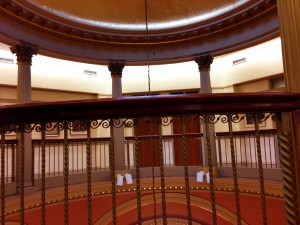Alright, so you’ve done some thinking about the cardinal rules of the internet. You have an understanding of social networking platforms. Now you need to figure out who you want to be online.
No, seriously, that’s really important.
The internet persona is the projected image of yourself that you put on the internet. Through a combination of social media, blogging, and strategic web page contributions, you can curate an online presence which projects a very specific image of who you are. This image can have as much (or little) to do with reality as you deem appropriate for your chosen objective.
These days, curating an online presence is an extension of creating a marketable resume. Because trust me, one of the first thing your potential employer is going to do when your resume hits her desk is google your name. So what is she going to find there? Pictures of you making stupid life choices in your undergrad, or information to support the notion that you’re a responsible and respected professional in your chosen field?

This is the first image that pops up in google when you search my name (that’s because it’s my google+ profile pic); know how your networking effects your search results.
Now. This isn’t to say that you can’t have multiple online personas (you can); you will just need to be extremely careful at the personal information you share with each social networking platform (and keep clever track of your online dossiers). Often times, even if your full name or e-mail isn’t available in a public profile, it can still be linked via meta-data to whatever network you are currently using. So if you want to do the alter ego thing, you really need to be on top of who you are where and what your privacy settings look like at each port of call.
Personally, I think it’s just easier to keep my digital nose clean. My job is the biggest extension of my personality anyway, and often the quirky personal details that I use to spiff up this blog, my twitter feed, and certainly my facebook lend credence to my framing argument: hire me because I’m passionate, knowledgeable, and (literally) live for this.
I do realize that I’m a special case. I happen to love my chosen vocation and, even if I wasn’t getting paid to do it, I’d still be involved with it. You can take the girl out of the theatre, but you can’t take the theatre out of the girl. Additionally, theatre (and academia) are both life-devotions rather than professions. I don’t have regular set hours, I am basically on-call all the time, and I never really “walk away” or leave my work “at work” because there’s actually no way to. I will always be thinking about my research. I will always be grinding on my next project. My brain doesn’t compartmentalize very well.
Even if you function under more conventional rules of “work”, you should consider your web presence to be an extension of your professional self. What qualities does your industry require to be the most successful in it? What personal flair do you bring to a project? What does your industry value in a worker?
This is not to say that your online persona should be a robot-you single-mindedly programmed to do nothing but work; far from it. Your online persona should be personable; human. Just a human built to do the job that you want to do.
Does your industry require tenacity? Straightforwardness? Verve? What is it that makes people want to work with you in your industry? What can you offer to a project that no one else can? If you can figure out how to answer these questions, you can begin to craft a persona that exhibits these qualities.
Where would someone in your industry be expected to hang out? Do in their free time? Think about how your leisure activities reflect upon your human aspects (for instance: you will notice an inordinate number of tweets on my feed about going to the library, grading, and otherwise working on things…. That’s by design, folks). What are the kinds of things that someone in your industry would be expected to notice from the places you go? The

I am, for instance, the type who takes pictures of beautiful libraries (yes, this is a public library)
architecture? The marketing potential? Find a way to cleverly insert your observations into your tweets, facebook posts, instagram pics.
Social networking is a careful game of show and tell. You assemble the pieces of a puzzle to resemble what you want to show people. Sometimes, one piece out of place can get glossed over (perhaps one less-than-appropriate tweet). Sometimes, the egregiousness of an already problematic infraction multiplies into proportions which swallow the rest of your public image (see: the recent Steven Taylor Twitter racism scandal http://www.chroniclelive.co.uk/news/north-east-news/steven-taylor-could-charged-fa-6310354 ). But this shouldn’t be a problem for you since you’re following rule one of the internet, right? RIGHT?

